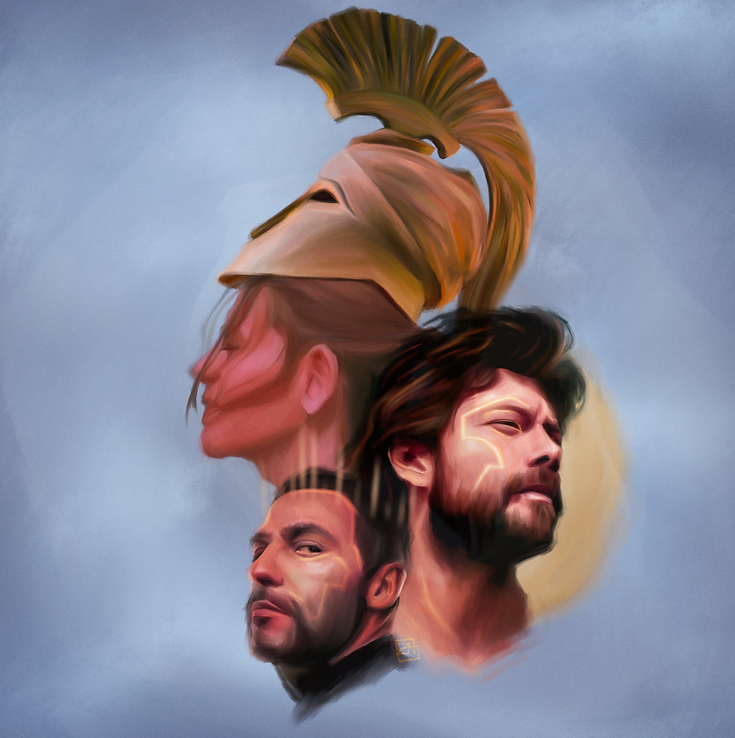Meanders: Zara Naveed
Athena, Helios and Hades, by Zara A. Naveed
The Classical world has always been a great escape for me - I spent my childhood in bookshops flicking through those big encyclopaedias that detailed every aspect of ancient Egypt, watched documentaries on the Norse gods and read the entire Percy Jackson collection tenfold.
In my teen years I visited ancient sights, from Aspendos to Pompeii, and studied the art & literature of the time. It's honestly no surprise that it has followed me into well into my adulthood.
I had assumed that I'd reached the end of my Classical education when I had finished high school, but it was quite clearly the opposite -- In my first lecture as a programming student we were introduced to the Antikythera Machine; a beautiful hand powered orrery, but also more surprisingly, the oldest example of an analogue computer right out of Ancient Greece.
The machine predicted astronomical positions, eclipses and tracked the cycle of the ancient Olympic games using a complex but fragile system of cogs and gears. Insane, right?
Throughout my first year we were introduced to many computing concepts and machines dug up from the ancient world that still applied to modern computing - Cicero spoke of the sphere of archimedes, and there is evidence that the Ancient Romans had all sorts of equivalents to a modern supercomputer. Even as I specialised in programming, I quickly learned that the philosophical systems devised by Plato and Aristotle actually laid down the groundwork for two of the most commonly practiced coding models (OOP & FM), and algorithms derived from the ancient Greeks are what our current tech depend on.
The Ancient world has also taken the game development world by storm. Following the massive success of the God of War franchise and Assassins Creed: Odyssey, Developers are extremely eager to take advantage of the genre - although once considered quite niche, it has become very clear that there's a substantial market for mythology and ancient world focused games. As an incoming games developer and Classics enthusiast myself, the new space for classically inspired games is incredibly exciting. I've been part of conversations for newer developments, and currently planning a roadmap for my own mythology-themed games.
It’s also encouraging to see the audience that these games attract - the Assassin’s Creed renditions of Ancient Greece and Egypt have amassed an incredible fanbase, who are eager for similar content. I’m almost certain that this will drive other developers - big and indie - to stick with the genre.
Aside from its influence in my programming styles, mythology and the ancient world have had a major influence in my art style over the years. I’ve painted many divinities, classical sights and ancient figures. Although I pursued painting and drawing as strictly a hobby, some of my classically inspired works have gathered quite a bit of attention. I have frequent buyers of a print of a painting I made of the temple of Athena during my visit to Herculaneum, and created a small handmade postcard collection inspired by Homer.
Last year a music producer came across one of my paintings of Athena, and it led to bringing me onto one of the most mind-blowing projects to date. You could argue too that game development is a blended art; I’ve developed many of my university projects to have a classically inspired background. Ranging from two gladiators battling it out over wine, to a more refined digital card game based of Scottish Myths.
The Ancient World and gaming tech was really not a pairing I had ever considered to work (art, I understand), but it's a rabbit hole that I am more than happy to delve into. I used to hold a lot of resentment that I didn't have access to classical studies during my formative years, however that energy quickly dissipated into making it more accessible through gaming, out of all things. This angle on Classics is incredibly exciting, and I'm incredibly eager to see where this journey leads me (hopefully to produce a Medusa based video game, but we can only hope!).
Dante Alighieri by Zara A. Naveed



